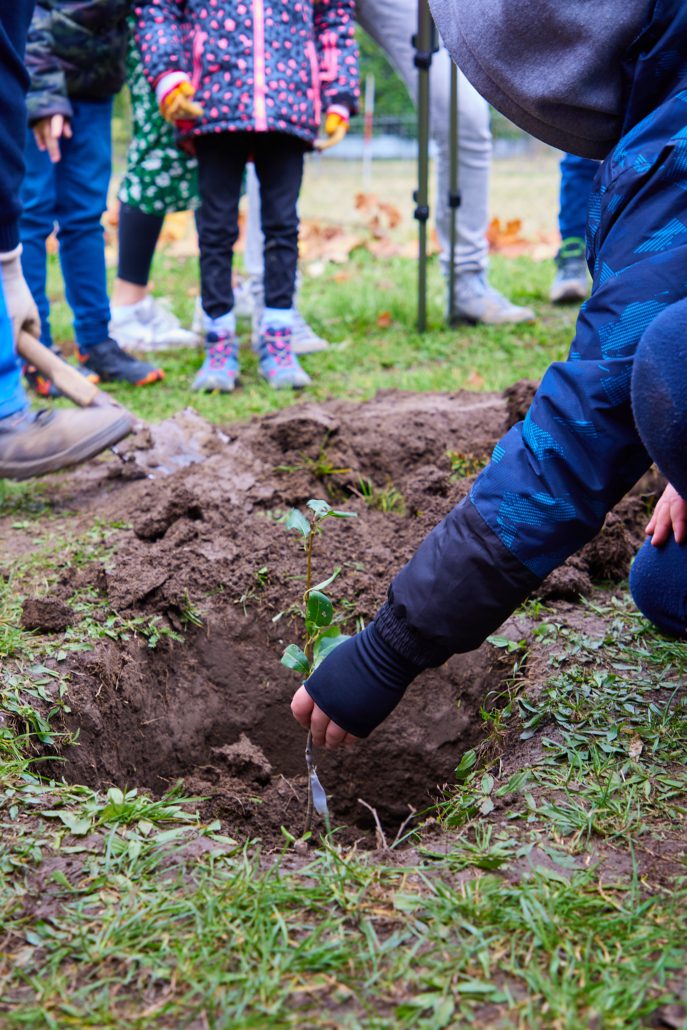On the path of carbon-consciousness: SPAR plants hundreds of indigenous fruit trees to compensate for the impact of their events
SPAR Hungary’s environmentally-conscious corporate event practice continued this year. The store chain has already had two carbon-conscious company gatherings in 2024. SPAR compensated for the carbon emission from the partner event for the Budapest Wine Festival and its annual press conference which presents business results, by planting 418 indigenous fruit trees.
“Sustainability is a strategic issue for SPAR Hungary. Our company has paid special attention so that renovated or newly opened stores and the continuously developing plants are equipped with energy saving lighting, heating and cooling systems, selective waste collection and recycling facilities, and to reduce paper and plastic waste to minimise their greenhouse gas emission. In addition, we now try to organise our own events to be carbon-conscious. This year we compensated for the carbon dioxide emission of two of our events; the partner event of the Budapest Wine Festival and our annual press conference where we present our business results, by planting indigenous fruit trees,” explained Márk Maczelka, head of communications at SPAR Hungary.

When arranging their own events, SPAR prefers short supply chains and sources most of the ingredients of the food they serve from local producers. Meals were prepared on the premises and multi-purpose utensil sets made it possible to prevent waste accumulation. Waste was collected selectively, and food waste was processed by Biofilter. At the Budapest Wine Festival partners’ event, the food that didn’t get touched was distributed to people in need by the Hungarian Food Bank Association.
SPAR’s partner, the GreenDependent Institute calculated the carbon footprint of the events based on the number of attendees, duration, travel included, meals and beverages, service and energy and paper used. As a result, the total carbon footprint of the two events came to 10.83 tonnes of carbon dioxide – most of which was made up of catering and travel. To increase the carbon awareness of the event, SPAR compensated for the emission calculated by planting 418 indigenous fruit trees.
Trees that are indigenous to Hungary are sourced from a nursery called Tündérkert in Pórszombat to ensure gene conservation. Saplings are distributed to schools and not for profit gardens. Planting them has further sustainability-driven advantages; they provide school pupils with educational and community gardening opportunities, as well as contributing to biodiversity and the preservation of landraces.



